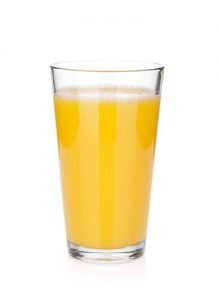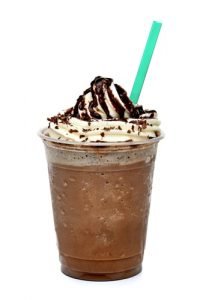10 Foods You Should Never, Ever Eat
Today I’m going to cover what foods you should NEVER eat under any circumstances!
If you’re reading this article, you’re probably interested in healthy eating. You might even know a thing or two about what foods are good for you.
The problem is that there are so many so-called experts out there that we have no idea where you might have gotten your information from. Also, what counts as “healthy” in your mind?
We consider health-boosting foods to be nutrient-rich and minimally processed. We don’t care if the label says that it’s sugar-free, low fat, all natural, or even organic.
In fact, most of the foods that we eat for our health don’t have a label at all. Here at Avocadu, we advocate a no sugar or processed foods diet, but even if you aren’t ready to take your diet to that level, there are still some foods you MUST avoid at all costs.
Regardless of whether food is fresh, packaged or processed, there are some foods that should never cross your lips if your health is a priority.
Stay healthier, feel better and possibly even live longer by never eating the following foods.
This post may contain affiliate links, which helps keep this content free. Please read our disclosure for more info.
1. Microwave Popcorn
Many people think of popcorn as a health food. One cup of the crunchy snack contains only 30 calories.
The same amount also contains 1 gram of protein and 1.2 grams of fiber, making it satisfying and relatively safe for your waistline. It also just “feels light,” right? So it’s something that you don’t feel that eater’s remorse from.
However, microwave popcorn truly can wreak havoc on your system.
It’s not just the partially hydrogenated soybean oil, artificial flavor, artificial color and chemical preservatives in microwave popcorn that can harm your health. The bag that most types of microwave popcorn come in is coated with toxic perfluorooctanoic acid.
According to the Environmental Protection Agency, this chemical is a carcinogen and has been linked to cancer. It can be harmful to your health if you’re eating the popcorn, and it’s not good for everyone else in your environment to breathe in.
Just think of that awful yellow color on your popcorn that you associate with “yummy, movie theater butter.” It isn’t real butter. At all. Note the words “artificial flavor” AND “artificial color” in the above description. There’s nothing real about that stuff.
Make your own popcorn using organic, non-GMO kernels and an air popper or the old standby—your stove. We love it with organic, unrefined coconut oil and sea salt!
You can also use all kinds of healthy and natural additives like garlic, extra virgin olive oil, Cajun seasoning, and nutritional yeast if you’re into the cheese flavoring (which is also loaded with nutrients!).
2. Fruit Juice

Fruit is healthy, right? Sure; fruit contains nutrients, vitamins, and fiber. However, when it is processed into juice, it becomes a sugar-laden beverage with little nutritional value.
Even though it can be tempting to down juice that claims to provide three servings of fruits and vegetables in one glass, it’s not the same as eating those foods in their natural forms.
Fruit contains a lot of sugar (and most of that is ADDED sugar, not naturally occurring sugar). If you eat four oranges, you take in that sugar, but you also get the added fiber that helps balance out that sugar.
The fiber keeps you full. According to The Psychology of Eating, the act of chewing makes you feel more satisfied.
Swallowing four oranges in the form of juice may provide you with some vitamin C, but the sugar and lack of chewing may lead you to crave more sweet treats. It also contains preservatives to make it shelf-friendly. Stick to eating whole oranges with your breakfast!
3. Margarine
Another remnant of the fake-health-food craze of the ‘80s and ‘90s, margarine is made of hydrogenated fats. Even most peanut butters aren’t being made with hydrogenated oils anymore because of the trend towards natural peanut butters.
This article by Dr. Axe explains how these trans fats are more harmful than natural saturated fats for your cardiovascular health.
Margarine is almost as far from a natural substance as you can get. It has zero nutritional value. Why would we ever want to put something in our bodies that has ZERO nutritional value? What a waste!
In contrast, organic and grass-fed butter from pastured cows contains beneficial nutrients like conjugated lineic acid, butyric acid, vitamin K2, vitamin A, vitamin D and vitamin E.
And P.S. grass-fed butter is only marginally more expensive than regular butter! The price has gone down tremendously thanks to recent health trends and consumer demand for better ingredients! Look for it at your local grocery store!
4. Artificial Sweeteners

Even though artificial sweeteners are by definition unnatural, many people believe that because they are so readily available for human consumption, they must not be bad for you.
People who are addicted to sugar think that they’ll be healthier if they swap that sugar for artificial sweeteners.
I mean, how can zero calories NOT be healthy, right? Wrong.
Eating too much sugar is linked to inflammation, obesity, and diabetes. However, research shows that artificial sweeteners can cause diabetes by messing with your intestinal flora (1).
Scientists also say that artificial sweeteners are associated with certain types of cancer, allergies, brain tumors, high blood pressure, headaches, seizures, and obesity (2).
Although it seems like you’d be more likely to stick to a healthy eating plan if you could just trade in your favorite dessert for a similar-tasting, low-sugar replacement, that’s not necessarily the case. It’s also not necessarily healthy.
Remember that artificial is just a fancy word for FAKE.
Staying away from the highly processed foods that are made with artificial sweeteners as well as cutting out sugar from your diet may ultimately be the best way to cure your cravings for sugar and carbs.
5. Low-Fat, Deluxe-Flavor Yogurt
Nowadays, almost every brand of yogurt offers fancy flavors, like key lime pie and mint chocolate chip. Don’t be fooled.
Even the commercials show you these fancy little yogurts being eaten by slim women talking about how healthy they are now that it’s a staple in their lives. They show you these average, good-looking moms in their beautiful brightly lit kitchen with their cute workout clothes on…
The truth is that many of these yogurts are no healthier for you than ice cream. One 6-ounce container of Yoplait strawberry yogurt contains 26 grams of sugar.
The American Heart Association recommends that adults consume only 36 grams of sugar per day. If you do enjoy yogurt, switch to Greek varieties, which have more 2-3x more protein and typically contain far less sugar.
6. Low-Carb Meal Replacements or Energy Bars
Although it seems convenient to pack in plenty of protein and other nutrients by eating an energy bar, these products are often highly processed and lack the benefits that real foods provide.
Many energy bars are just re-branded candy bars. They have to add dried fruit, processed peanut butter, and chocolate to them to make them taste good.
If you’re looking for a protein pick-me-up, go for protein powder instead. You can mix with it unsweetened nut milk such as almond, cashew, or coconut, or even just water. It’s a great option to take with you on the go!
7. Fake Coffee Drinks

Real lattes, cappuccinos, and iced coffee are made from brewed coffee and some milk. There is a lot of evidence that real coffee is good for your health.
Many beverages sold at coffee shops or in the grocery stores aren’t coffee at all. A frappuccino type of blended drink is usually made of a processed base, sometimes a few pumps of concentrated coffee syrup, and other artificial flavorings.
I know, because I worked at 3 different coffee shops in college for 3 years!
Depending on what you add to your drink, you may be consuming caramel coloring, which has been linked with thyroid, lung, and liver cancer. Yikes!
You’re also drinking high-fructose corn syrup, mono- and di-glycerides, which are actually trans-fatty acids and a ton of refined sugar.
Starbucks isn’t the only culprit. McDonald’s vanilla iced coffee is filled with artificial chemicals, too. Especially if a coffee drink contains nondairy creamer or flavored syrups, you might want to stay away.
Stick to making them yourself at home with ingredients like coffee, unsweetened nondairy milk, protein powder, cinnamon, and cacao powder.
8. Gluten-Free Processed Foods
Just because a food is gluten-free doesn’t mean it’s healthy. Many gluten-free snack and dessert alternatives are highly processed.
They may contain high levels of sugar, oils that aren’t great for your health, and refined grains. Gluten-free packaged food may not contain any more nutrients than a slice of Wonder Bread.
Another clue to the dangers of “gluten-free” on foods is that they are widely used as a marketing ploy to get you to think a product is healthier than it is.
I’m looking at my bag of matcha green tea powder right now and smirking that it says “gluten-free” on the packaging. It’s TEA LEAVES! Of course, it’s gluten-free!
I see this randomly on fruits and vegetables and all sorts of things that are OBVIOUSLY gluten-free. Food manufacturers want to make you feel as good and comfortable as possible with their product.
Hence why everything is labeled “ALL NATURAL” these days. That is because the USDA has not issued any definition at all on the word “natural;” therefore anyone can slap that on their labels. It’s completely meaningless.
If you’re trying to avoid gluten, focus on changing your mindset about convenience foods, and you may stop reaching for sandwiches, crackers, and pretzels altogether for more nutritious options.
9. Chef Boyardee
This canned pasta has its own flavor that just doesn’t taste like homemade. The beef ravioli variety contains caramel coloring, soybean oil, yeast extract, and high fructose corn syrup.
Yeast extract contains glutamic acid, a problematic compound that makes up MSG. According to Truth in Labeling, food manufacturers don’t have to list it as an ingredient if it’s found within other incorporated ingredients.
Glutamic acid has been associated with many adverse health reactions, including a headache, fatigue and breathing difficulties.
Please do not eat this or feed it to your children!
10. Muffins
This tricky food can pack a whopping number of calories in one sweet, convenient package. Muffins aren’t the enemy, but you should be aware that they are not your friend, either.
They are WAY too convenient for breakfast or a quick snack, which makes it nearly impossible to say no to them.
Many commercial muffins contain harmful chemicals. Even if you make all-natural muffins at home, have you ever calculated the number of calories in one serving?
You can often cut down on the amount of sugar that a muffin recipe calls for. Still, the average homemade muffin still contains about 250 calories, and they go down way too easy.
You could eat three eggs and a few cups of greens for the same number of calories and consume more nutrients and less sugar. Plus, you’ll be left much fuller and more satisfied.
It’s muffins and foods like these that wreak havoc on our systems and cause us to become insulin resistant. This means that your body doesn’t react as well to insulin, the compound that helps your body use sugar for energy.
More sugar stays in your bloodstream, hindering your weight loss efforts and potentially contributing to a whole host of health problems. If you have a lot of weight to lose, you might be insulin resistant too.
If you think you are having trouble losing weight and think you might be insulin resistant, our 21-Day Fat Loss Challenge would be a really great fit for you.
The program starts out with a week-long carbohydrate detox to help reset your system and make your body more insulin resistant so that you can properly process carbs again.
This detox will not only help you lose an average of 7-10 lbs in the first week, but it is designed to help you break through any weight loss plateau that you are currently suffering from.
Carbs are NOT the devil, but our bodies become VERY insulin resistant when they are overloaded with processed carbs for an extended period of time. Our program teaches you when to eat carbs, when not to eat them, what kinds to eat, and it will help you determine how YOUR body really responds to them.
We have over 1,000 people in our private support group going through the Challenge together, and every day they are sharing experiences, results, motivation, and lots of recipes!
The concepts that we teach will help you make the necessary changes in your diet and your lifestyle and how to keep them “beyond the diet.”
Click here to get started with YOUR 21-Day Fat Loss Challenge today!
If you have any questions about our program or about these foods you should never eat, please leave me a comment below, and we’d be happy to answer them!


Just wanted to thank you indeed for your encouragement , advices
You stars
All the best
Actually, some meat is labeled gluten free because the animals are being fed gluten free. I have celiac and thought it was weird to see Tyson label raw chicken breasts GF, come to find out, it’s because the chickens aren’t fed anything containing gluten.